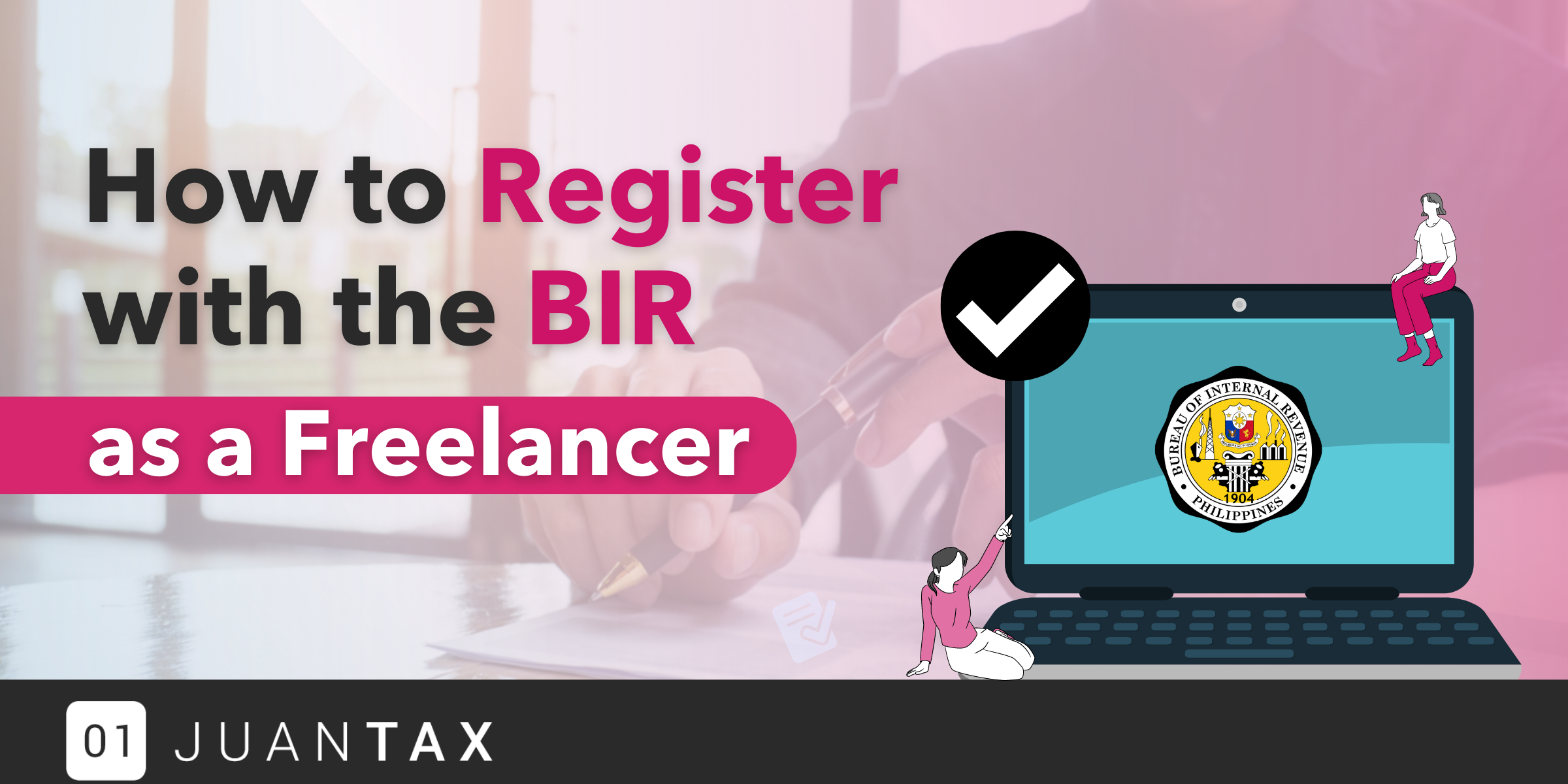As a freelancer, you have a lot of freedom and flexibility in your work. However, it’s also important to make sure you’re following the proper legal procedures and registering with the relevant government agencies, such as the Bureau of Internal Revenue (BIR) in the Philippines. This is crucial for ensuring that you’re paying the correct taxes and avoiding any penalties or legal issues down the line.
Registering with the BIR as a freelancer can be a confusing and daunting process, especially if you’re not familiar with the requirements and procedures. In this topic, we’ll explore the steps you need to take to register with the BIR as a freelancer in the Philippines, as well as why this topic is important for you as a freelancer. Whether you’re just starting out or have been freelancing for years, understanding the legal requirements and responsibilities can help you avoid any unnecessary stress and ensure that your business runs smoothly.
Overall, the article will likely provide comprehensive and practical guidance on how to register with the BIR as a freelancer in the Philippines, and why doing so is essential for your business.
Importance of BIR Registration as a Freelancer
Registering with the Bureau of Internal Revenue (BIR) is an essential requirement for freelancers in the Philippines. This registration process legitimizes their business and ensures compliance with tax obligations.
- Legitimizes your freelance business and makes it easier with clients who require official receipts
- BIR registration is required by the law for all freelancers earning income in the Philippines
- Allow freelancers to comply with their tax obligations and avoid penalties for non-payment or late payment of taxes
- BIR registration gives freelancers access to government services and benefits

Requirements for BIR Registration as a Freelancer
To register with the BIR as a freelancer, you need to provide certain documents and information, including your personal details, business information, and tax identification number. You will also need to submit proof of your income, such as your invoices or receipts, and pay the necessary registration fees or certification fee. Here’s some more information about each requirement:
- Taxpayer Identification Number (TIN): You will need to have a TIN to register with the BIR. If you don’t have one yet, you can apply for a TIN at the BIR or online through the BIR Online Registration and Update System (ORUS).
- Documentary requirements: You will need to submit certain documents as proof of your identity and business registration, such as a government-issued ID, proof of address, and your business registration papers (if applicable). You may also need to submit other documents depending on your situation, such as your previous income tax returns or your certification of exemption from withholding tax.
The following are the Checklist of Documentary Requirements:
| CDR No. | Description | Annex |
| F1101 | Application for Registration: Self-employed Individuals, Estates and Trusts | A1 |
| F1103 | Application for Registration: Corporations, Partnerships | A2.1 |
| F1103N | Application for Registration: Cooperatives, Associations, GAIs, LGUs, etc. | A2.2 |
| F11BF | Application for Registration of Branch/Facility | A3 |
| F1102 | Application for Registration of Employees | A4 |
| F1004 | Application for Registration under E.O. 98 | A5.1 |
| F1104T | Application for Registration under ONETT | A5.2 |
| F1106 | Application for Authority to Print (ATP) | A6 |
| F1105B | Application for Registration of Books of Accounts | A7 |
| F1100 | Application for Permit to Use Manual Loose Leaf | A8 |
| F1105 | Application for TIN Card Issuance/Registration Information Updates | A9.1 |
| F1105U | Application for Registration Information Updates | A9.2 |
| F1105T | Application for Transfer of Registration | A10 |
| F1105C | Application for Cancellation of TIN/Registration or Closure of Business | A11 |
- BIR Form 1901: This is the application form for registering with the BIR as a registered self-employed individual or sole proprietor, which is the category that most freelancers fall under. You will need to fill out this form completely and accurately, and submit it together with the other requirements.
- Payment of registration fee: You will need to pay the registration fee of Php 500.00 for new registrants. You can pay this fee at any bank’s Authorized Agent Bank (AAB) or through the BIR’s electronic payment system.
In paying the registration fee, you should fill out the form with the required information, including your Tax Identification Number (TIN), the type of payment (annual registration fee), and the amount you need to pay.
- Once your application is approved, you will be issued a Certificate of Registration (COR) or also called BIR form 2303 and a By completing the BIR registration process, you can legitimize your freelance business, comply with your tax obligations, and access various government services and benefits. Also, in the context of the BIR registration process, documentary stamps may be required to be affixed to certain documents.

How to Apply for a Tax Identification Number (TIN)
Applying for a TIN is a relatively straightforward process that can be done online or in person at a BIR office or authorized agent. You will need to provide certain documents and information, such as your personal details, proof of identity, and business registration papers (if applicable).
Listed below are the steps to guide you on how to apply for a Tax Identification Number (TIN) in the Philippines:
- Go to the nearest Bureau of Internal Revenue (BIR) office in your area. You can find a list of BIR offices and their contact information on the BIR website.
- Get a copy of BIR Form 1901 (Application for Registration for Self-Employed and Mixed Income Individuals, Estates, and Trusts). You can also download this form from the BIR website.
- Fill out the form completely and accurately. Make sure to provide your personal information, contact details, and other required information. You will also need to indicate your tax type if you are registered as a self-employed or mixed income, depending on your situation.
There are instances that taxpayers intend to update/change any data or information, for this application it is the BIR form 1905 the Application for Registration Information Update/Correction/Cancellation.
- Submit the form along with the following requirements:
- Two valid IDs – Bring any two government-issued IDs such as passport, driver’s license, postal ID, etc.
- Birth certificate – Bring a certified copy of your birth certificate from the Philippine Statistics Authority (PSA).
- Proof of address – Bring any document that shows your current address such as utility bills, lease contract, etc.
- Once you have submitted the requirements, wait for your TIN to be processed. The BIR usually issues TIN within one to three days. You can follow up on the status of your application by contacting the BIR or visiting their office.
- Once you have your TIN, make sure to keep it safe and secure. Your TIN serves as a unique identifier for tax purposes. It is used by the Bureau of Internal Revenue (BIR) to track your tax records and transactions. Keeping your TIN secure helps prevent identity theft and unauthorized use of your tax information. You will need it for all your tax-related transactions in the Philippines, such as filing your tax returns and registering with the BIR as a freelancer.
By following the steps outlined above, you can obtain your TIN and use it for all your tax-related transactions in the Philippines. Remember to keep your TIN safe and secure as it is a critical piece of information that you will need throughout your freelance career.

BIR Tax Obligations for Freelancers
As a freelancer in the Philippines, you have tax obligations that you need to fulfill to comply with the law and avoid penalties. The Bureau of Internal Revenue (BIR) has specific rules and regulations that apply to freelancers, and it’s essential to understand these obligations to ensure that you are meeting your tax responsibilities. In this section, we’ll explore the different tax obligations that freelancers have and what you need to do to fulfill them.
- Register with the BIR: All freelancers in the Philippines are required to register with the Bureau of Internal Revenue (BIR) and obtain a Tax Identification Number (TIN). This registration is essential as it legitimizes your freelance business and allows you to issue official receipts to clients.
- File and pay income tax: As a freelancer, you are required to file and pay income tax based on your net taxable income for the year. The income tax rates for individuals in the Philippines range from 0% to 35%, depending on the income bracket. Freelancers can choose to file their income tax returns either quarterly or annually.
- File and pay value-added tax (VAT): Freelancers who earn more than Php 3,000,000 per year are required to register as VAT taxpayers and file and pay VAT on their sales. VAT is a consumption tax that is added to the selling price of goods and services, and the standard VAT rate in the Philippines is 12%.
- File and pay percentage tax: Freelancers who do not meet the Php 3,000,000 threshold for VAT registration are still required to pay percentage tax on their gross receipts. The percentage tax rate varies depending on the nature of the freelancer’s business and ranges from 1% to 30%.
- Keep accurate records: Freelancers are required to keep accurate records of their income and expenses. This includes keeping track of receipts, books of accounts, invoices, and other financial documents related to their freelance business. These records will be used to compute the freelancer’s taxable income and to support their tax returns.
- Comply with other tax obligations: Freelancers may have other tax obligations depending on their business activities. For example, freelancers who employ staff are required to withhold and remit their employees’ taxes, including withholding tax on compensation and expanded withholding tax on certain payments.
By fulfilling these tax obligations, freelancers can avoid penalties and ensure that they are compliant with the law. It’s essential to consult with a tax professional to understand your specific tax obligations as a freelancer and to ensure that you are meeting them.

Benefits of Being a Registered Freelancer with the BIR
Registering with the Bureau of Internal Revenue (BIR) as a freelancer can have several benefits. Not only does it legitimize your freelance business and help you comply with the law, but it can also give you access to several government services and benefits.
Here are some benefits of being a Registered Freelancer with the BIR
- Legitimacy and Professionalism: Registering as a freelancer with the BIR gives your business a sense of legitimacy and professionalism. It shows that you are operating your freelance activities within the legal framework, which can instill confidence and trust in your clients.
- Compliance with Tax Obligations: Registering with the BIR ensures that you comply with your tax obligations as a freelancer. This includes filing and paying the necessary taxes, such as income tax and percentage tax. Being in compliance helps you avoid penalties and legal issues that may arise from non-compliance.
- Providing Official Receipts means you are legitimate: By providing official receipts, businesses demonstrate their compliance with legal and regulatory requirements. It signifies that they are operating transparently, keeping accurate records, and following proper accounting practices. It also indicates that they are willing to be held accountable for their financial transactions.
- Eligibility for Government Programs and Services: Registered freelancers may be eligible for certain government programs and services. For example, they may have access to government assistance or loans aimed at supporting small businesses. This can provide financial benefits and resources to help grow your freelance business.
- Professional Networking and Collaboration: Registering as a freelancer with the BIR allows you to become part of the official business community. This opens doors for networking and collaboration opportunities with other professionals, which can lead to partnerships, referrals, and expanded business prospects.
Overall, registering with the National Government which is BIR, by fulfilling both national and local registration requirements, freelancers demonstrate their commitment to legal compliance at both the national and local levels. This helps establish their legitimacy, builds trust with clients, and ensures smooth operations within the framework of the national and local government regulations. Also, it’s important to consult with a tax professional or seek guidance from the BIR to understand the specific requirements and benefits applicable to your freelance business.
In summary, freelancers in the Philippines are required by law to register with the BIR to legitimize their business, comply with tax obligations, and access government services and benefits. To register, they need to obtain a TIN, submit documentary requirements, and fill out BIR Form 1901. Registered freelancers also enjoy the benefits of tax deductions, better financial management, and the ability to expand their business. We highly recommend that all freelancers in the Philippines register with the BIR to avoid any legal and financial complications and unlock these benefits.
Call to Action
Attention, freelancers and independent professionals! Are you looking for an efficient way to stay tax compliant and simplify your accounting-related tasks? Look no further than Juan.
Juan integrates accounting, payments, financial reporting, and tax compliance with JuanTax into one complete solution, perfect for PH businesses. Experience all-in-Juan accounting and tax at https://www.juan.ac/.











